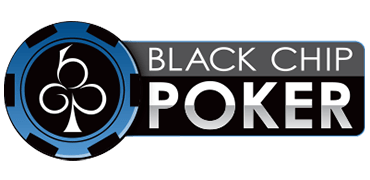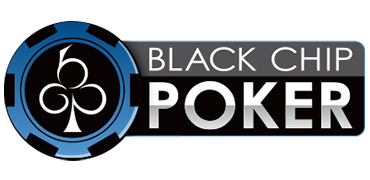An overbet in poker refers to any bet bigger than the amount already in the pot. A typical overbet size ranges from 33 to 100 percent more than the pot size. There are three possible times for overbetting: the flop, turn, and river. Even though it is possible to raise more than the amount of the pot preflop, this occurs a lot more frequently and is different from a post-flop overbet.
Pre-flop raises are made to increase the pot, isolate opponents, and alter the dynamics of the hand. Post-flop overbets, however less frequent, have a different goal in mind. Once the community cards hit, most players rarely overbet post-flop without a made hand.
The unpredictable nature of post-flop play, marked by evolving possibilities and calculated risks, naturally leads to more cautious decisions hence why most players make overbets before the flop.
As ranges are more defined, it is simpler to overbet because you can target specific areas of your opponent's range with your bet.
An example hand that demonstrates an overbet in poker.
Hand: No-Limit Texas Hold'em
Blinds: $1/$2
- Players: Player A, Player B Player A (Button) has 8♥️ 8♠️ and Player B (Big Blind) has K♣️ Q♦️
- Player A raises to $6, and Player B calls.
- Flop (Pot: $13): 2♦️ 7♠️ 9♥️
- Player B checks while Player A bets $8.
- Player B calls (Pot: $29) Turn: 2♦️ 7♠️ 9♥️ 5♣️
- Player B checks, and Player A bets $20.
- Player B calls the River (Pot: $69): 2♦️ 7♠️ 9♥️ 5♣️ J♠️ Player B checks again.
Let's say Player A decides to make an overbet on the river. The pot is currently $69, and a typical overbet can be anywhere from 33% to 100% larger than the pot size. In this example, Player A goes for a big overbet and bets $150, more than twice the size of the pot. Player A overbets the pot by betting $150. Player B faces a tough decision due to the large bet size. Player B ultimately folds, and Player A takes down the pot without showing their hand.
Have you ever wondered when to overbet in poker? This article will dive deep into overbetting techniques, dealing with overbets, and much more.
When To Use Overbets
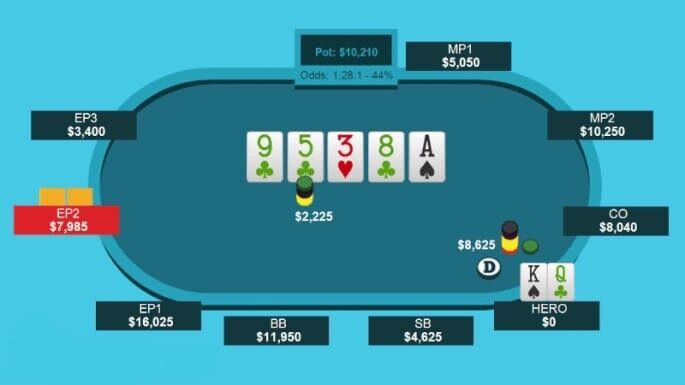
Building Pots
Building pots with your premium hands is vital for long-term success. It is where overbet comes in; by overbetting poker, players can build massive pots, get paid off, and extract maximum value from their good hands.
Playing Versus Passive Players
When you're dealing with passive opponents, they're more inclined to be risk-averse and uneasy with large bets. Because they tend to be cautious, overbets could be a great way to scoop pots with marginal hands or bluffs against these kinds of players, because they are inclined to fold more often.
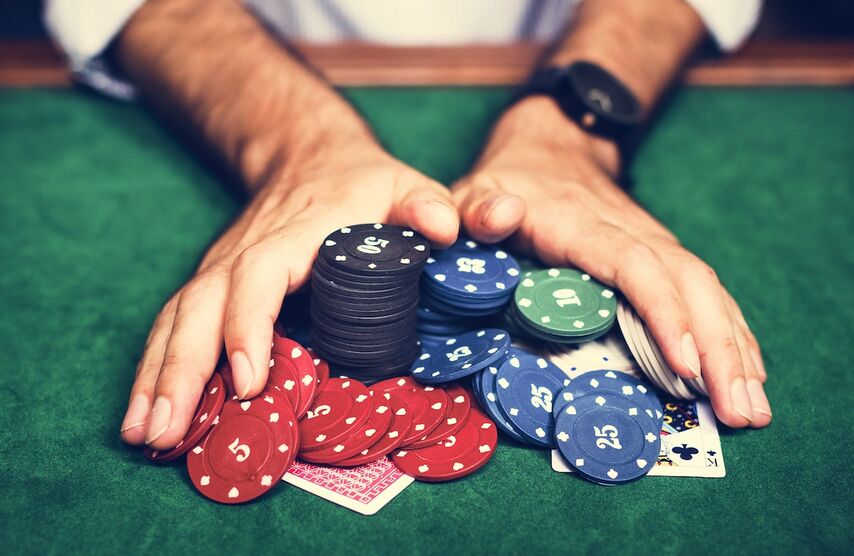
However, like all things in poker, overbetting carries risks. It can backfire if used recklessly or against observant opponents who might see through your ploy. Therefore, tread carefully and continuously adapt your strategy based on the table dynamics and the specific players you're up against.
Whether at PokerStars, 888 Poker, or AmericasCardroom, you must gauge the table and opponents to make the right move. Embrace the excitement and skill of online poker while keeping a keen eye on your bankroll.
Capped Opponent Ranges
These circumstances are ideal for bluffing by overbetting. Because of how they have played the hand up to that time when your opponent is capped, they don't have the best hands in their range.
Consider the following scenario: you're sitting at a high-stakes table and notice your opponent routinely avoids betting big, indicating a capped range – meaning their strong hands need to be represented to their full potential. In such situations, overbetting becomes a great move. By making a large bet that increases the pot size, your opponents are compelled to make tough decisions. This move can be highly effective with a polarized hand range consisting of absolute monsters and bluffs.
Suppose you have the 8♥9♥ and the board reads 7♥10♥Q♣2♠. With a flush draw and an open-ended straight draw, you have a semi-bluffing hand of considerable strength. The previous betting patterns from your opponent suggest that they hold a decent but not a premium hand. You seize this opportunity and decide to overbet, placing your opponent in a tough spot. It forces them to make a difficult choice: surrender a decent hand or call with uncertainty anticipating a monstrous draw or a made hand.
| Bet Size | Pot Odds |
|---|---|
| 1/4 Pot-Size(25% of the Pot) | 17% |
| 1/3 Pot-Size(33% of the Pot) | 20% |
| 1/2 Pot-Size(50% of the Pot) | 25% |
| 2/3 Pot-Size(66% of the Pot) | 28% |
| 3/4 Pot-Size(75% of the Pot) | 30% |
| Pot-Size(100% of the Pot) | 33% |
| 1.5 Times the Pot-Size (150% of the Pot) | 37% |
| Double the Pot Size(200% of the Pot) | 40% |
How overbets affect pot odds
Overbetting for Protection
It's common to over-bet the pot when attempting to protect your hand. When you are ahead and have callers on a risky board, you can complete the action and take down the pot. For instance, you're seated with a pair of queens at a tight, no-limit Texas Hold'em table. The flop reads 10♠6♠2♣ and you suspect your opponents are looking for a straight or flush. You decide to overbet the pot to safeguard your hand.
It serves a dual purpose: first, it makes your opponents think twice about chasing their potential draws, as the size of your bet can render their pot odds unfavourable. Second, it sends a message of confidence, hinting at the sheer strength of your hand. However, be careful this technique should be used rarely and precisely. Meaning overbetting as a bluff or in improper situations could lead to catastrophe. Of course, you can always practice overbetting for free in online freerolls to help you figure out the right and wrong times to overbet.
Overbetting for protection may be an effective poker strategy, but it takes skill, close attention to your opponents' habits, and in-depth knowledge of board texture. Employing this tactic too frequently can become predictable and exploitable. So, while it can be an invaluable tool in your poker arsenal, it's essential to use it selectively and adapt to the dynamics of each hand and table.
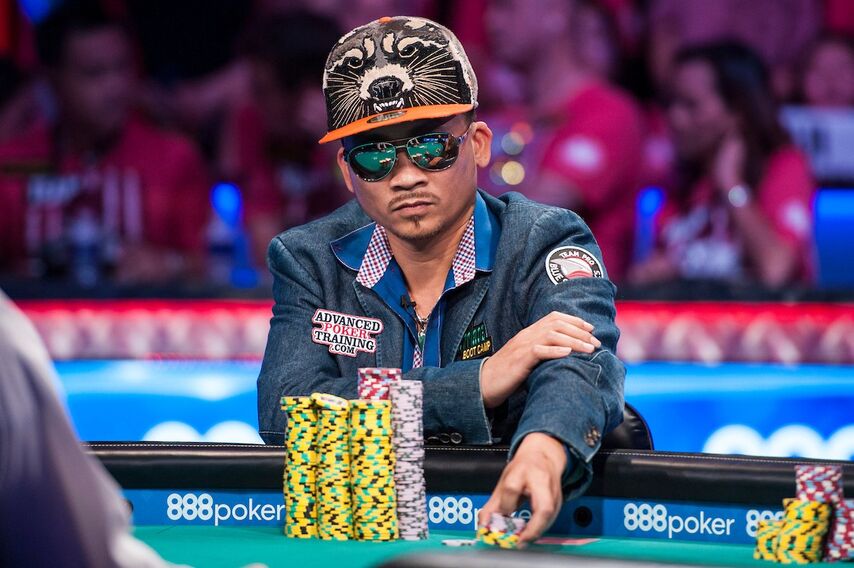
Dealing with Overbets
If we perceive our opponent as a skilled player, we might expect them to overbet with a combination of value bets and bluffs. The most important thing we can do versus a balanced range is to select our best calling hands. Pay attention to their betting patterns and the game's dynamics to gain valuable insights.
Moreover, consider your hand strength and the community cards on the table. Is your hand worthy of a call or a raise, or would folding be wiser? Evaluate the pot odds and the potential risks versus rewards before moving. Remember, poker is a game of adaptability. If you face overbets repeatedly, be prepared to adjust your strategy accordingly. It might be time to tighten up or loosen your range depending on the circumstances.
| Scenario | Effectiveness of Overbetting |
|---|---|
| Deep Stacks | High |
| Polarized ranges | High |
| Complex board texture | Moderate |
| Reading opponents | Moderate to high |
Situational Effectiveness of Overbetting
You don't want to call overbets when your opponent is tight and passive since they're far more likely to be the nuts than a crazy loose player. When playing post-flop, identifying these player differences will help you save a ton of cash!
Summary
Overbetting in poker is a daring and powerful tactic, meaning, when used strategically, it can be a game-changer. It requires a thorough understanding of the game, reading opponents, and making calculated risks. Like any other aspect of poker, mastering the art of overbetting takes time, practice, and the willingness to learn from successes and failures. With careful execution and a touch of audacity, players can use overbetting as a potent weapon to take their poker game to the next level.





















